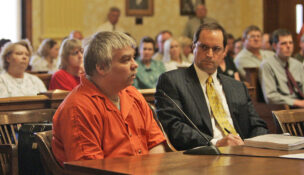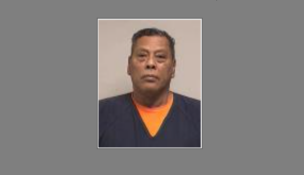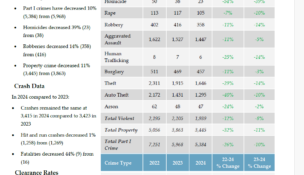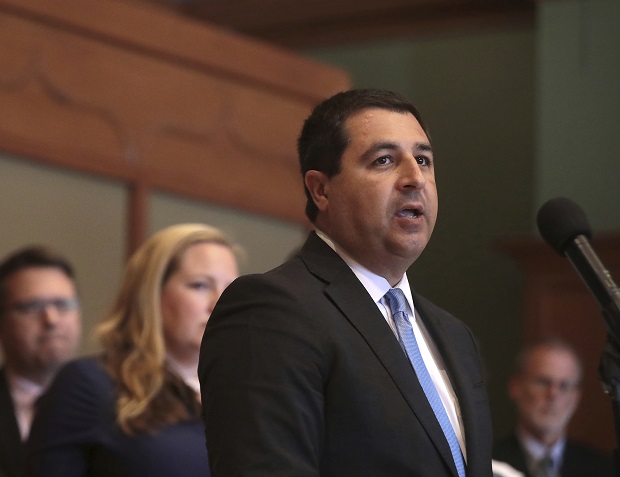Brunner receives national recognition
By: dmc-admin//August 2, 2006//
 |
|
Hon. Edward R. Brunner
Barron County Circuit Court |
When Judge Edward R. Brunner, who recently received a national award for judicial excellence, decided to go into law, he never imagined he’d be a judge.
But when the state Legislature expanded the number of circuit judges nearly 20 years ago, he decided to run for the new Barron County Circuit Court post.
“It was a wonderful position to not only be an advocate, but also to do justice and that appealed to me,” said Brunner, who’d already been elected Rice Lake city attorney. “I had nothing to lose.”
He won the election in 1988, the last contested race for the post to which he was re-elected in 1994, 2000 and 2006.
His work since then earned him statewide recognition last year when he received the State Bar of Wisconsin’s Lifetime Jurist Achievement Award in 2005.
This year on July 18, Brunner received a national recognition: he was named the 2006 recipient of the William H. Rehnquist Award for Judicial Excellence by the National Center for State Courts. He is the 11th judge nationally and the first from Wisconsin to receive the honor that recognizes judges for “taking bold steps” to address various issues affecting their communities.
“You don’t get a lifetime achievement award or get a recognition like this unless you’ve had people around you who have assisted and allowed you to succeed,” Brunner, 58, said. “It’s a group effort.”
That Brunner doesn’t sit in an urban area where judges typically get media attention for their work says a lot about his efforts, said Wayne A. Arnold, a public defender in Barron County.
“It’s an even greater credit to Judge Brunner that, coming from a rural northwest Wisconsin county, he’s being recognized on a national scope,” Arnold said.
Brunner’s decision to use his position to identify problems coming in the court led to both recognitions.
“We look for a problem, get people together and solve it,” Brunner said. “I couldn’t have been a luckier person to be elected in this community which is so receptive to trying to make itself a better community.”
Solving Problems
For instance, when the jails were overcrowded in 1989, he worked with the community to begin community service programs.
When post-divorce custody issues began increasing, community initiatives led a required class for parents called “Children in the Middle.” That reduced the number of contentious divorce cases.
When domestic violence cases started increasing in family, juvenile, criminal and civil courtrooms, he helped coordinate a community task force that collaborated with the UW-Barron County and national experts.
“He’s always looking for a way to drain the swamp instead of battling the same alligators over and over again,” Arnold said. “He looks for ways to make the system work better for common folks.”
After Brunner attended a conference on restorative justice in the late 1990s, he helped plant the seed for what is now Barron County Restorative Justice, a private non-profit group that organizes opportunities for victims, offenders and community members to solve social problems. The concept helped reduce juvenile delinquency adjudications by 75 percent after three years, Brunner said.
“The principles of restorative justice encapsulate why I became a lawyer and why I became a judge,” Brunner said. “My initial dream of what we could do with victim-offender conferences and other traditional aspects of restorative justice met and far exceeded my expectations.”
Brunner History
Brunner’s work in social service pre-dates his law career. While attending night classes for his law degree at the University of Akron Law School in his hometown, he served as executive director of a youth service agency in Lorraine, Ohio.
He continued for two years after graduating law school in 1974 and then returned to Wisconsin. He and wife Linda, a native of Superior, had married in 1969 during their undergraduate years at Marquette University.
Brunner worked in private practice before running for the city attorney post, a part-time position he held while practicing on his own. And that’s when the bench post beckoned.
“I chose to run because I thought the timing was right,” he said. “I had an electorate already that I had served. It seemed like a natural thing.”
In 1999, the Wisconsin Supreme Court appointed Brunner chief judge of the 10th Judicial Administrative District. In 2003, he ran unsuccessfully for a seat on the state Supreme Court.
“I learned I wasn’t going to do it again this year,” Brunner said of the experience. “It was 16 months of hard work. It was emotionally draining. 10,000 votes would have turned the votes.”
Ongoing Contributions
After the race, which Justice Patience Drake Roggensack won, Brunner turned his attention to developing a drug court. The impetus for the court, which launched in January, was a rise in methamphetamine cases, he said. He also focused on methods to settle jurisdictional disputes between the state and tribal courts.
“He’s just been outstanding as a judge and as a chief judge in creating innovative programs including programs for self representation and state and federal court relations with tribal courts,” Chief Justice Shirley S. Abrahamson said.
When he’s not on the bench or working in the community, Brunner plays golf, though he wouldn’t disclose his handicap. He also hunts, fishes, and curls in the winter — a sport he learned in 1977.
Nearly two years ago, he picked up another “hobby”: spending time with his granddaughter who lives in Ithaca, N.Y. He and wife Linda see her about every two months, he said.
“It has to be a hobby because I have to make time to get to see her or see her when she’s here,” Brunner said. “It’s fun spoiling a kid instead of having to raise a kid.”
Brunner said he came from “simple beginnings” with parents who survived the Great Depression era and worked to ensure he and his four siblings had college educations.
As a child, he thought professional athletes had it made since they did what they loved. But after getting on the bench, he realized he was doing the same.
“I’m one of the people who have it made,” Brunner said. “I get paid for doing what I like to do.”
Legal News
- Steven Avery prosecutor Ken Kratz admits ‘mistakes were made’
- Colombian national extradited to Milwaukee faces International narcotics-trafficking conspiracy charge
- MPD: Milwaukee homicides down nearly 40 percent compared to last year
- EVERS: Republican lawmakers No-Show at special meeting to release statewide PFAS funding, stabilize healthcare access
- Wisconsin ICAC Task Force conference on Missing and Exploited Children highlights increase in sextortion cases
- More than 300 Wisconsin officers back in law enforcement after being fired or forced out
- Former Trump staffer who said to ‘fan the flame’ after 2020 loss hired to lead Wisconsin GOP
- Gov. Evers appoints David Casey to Serve as DOR Secretary
- Former Marine sentenced for Molotov Cocktail attack against Planned Parenthood Clinic
- ABA names 34th Annual Margaret Brent Women Lawyers of Achievement Awards honorees
- FBI launches criminal investigation into Key Bridge collapse
- Man charged in slaying after woman’s leg found at Milwaukee-area park
WLJ People
- Power 30 Personal Injury Attorneys – Russell Nicolet
- Power 30 Personal Injury Attorneys – Benjamin Nicolet
- Power 30 Personal Injury Attorneys – Dustin T. Woehl
- Power 30 Personal Injury Attorneys – Katherine Metzger
- Power 30 Personal Injury Attorneys – Joseph Ryan
- Power 30 Personal Injury Attorneys – James M. Ryan
- Power 30 Personal Injury Attorneys – Dana Wachs
- Power 30 Personal Injury Attorneys – Mark L. Thomsen
- Power 30 Personal Injury Attorneys – Matthew Lein
- Power 30 Personal Injury Attorneys – Jeffrey A. Pitman
- Power 30 Personal Injury Attorneys – William Pemberton
- Power 30 Personal Injury Attorneys – Howard S. Sicula











